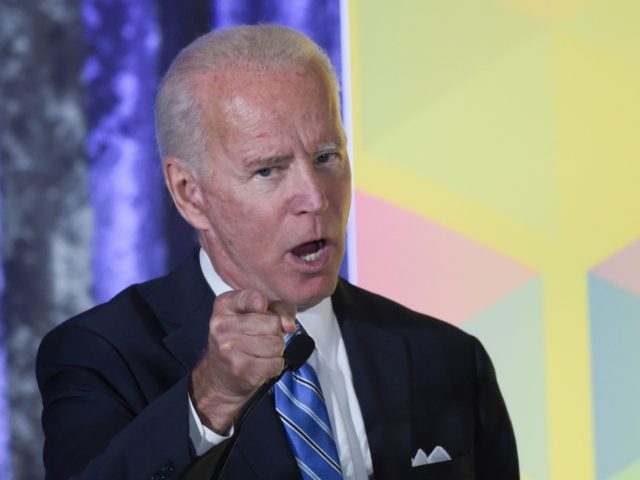Joe Biden’s (D) favorability has dropped following last week’s debate performance in Westerville, Ohio, according to a Morning Consult poll released Monday.
While most national polls have shown a tight race between the former vice president and Sen. Elizabeth Warren in recent weeks – with Warren topping Biden in some cases – Morning Consult has consistently shown Biden leading the field.
The current results, taken Oct. 16-20, 2019, show Biden leading the field with 30 percent and Warren in second place with 21 percent. Sen. Bernie Sanders (I-VT) came in third with 18 percent support, followed by Mayor Pete Buttigieg (D) and Sen. Kamala Harris (D-CA), both of whom garnered six percent support each. Sen. Cory Booker (D), Beto O’Rourke (D), and Andrew Yang (D) garnered three percent, and the remaining candidates saw two percent support or less.
While there seems to be a disparity between the national polling results of Morning Consult and that of other polls, the trend remains the same. Morning Consult shows Biden on a slow decline – falling from a 40 percent high in May – and Warren rising, jumping from her seven percent low in March.
Notably, though, is Biden’s drop in favorability. The post-debate poll shows that Biden lost five favorability points following the last debate, dropping from 55 percent to 50 percent. Sanders’ remained the same with 57 percent, and Warren’s jumped by one point, from 52 percent to 53 percent.
Additionally, Warren remains the top second choice for Biden voters, with 28 percent choosing her and 26 percent choosing Sanders. The results are not necessarily reciprocated, as the Sanders holds a slight edge, earning the second choice support from 25 percent of Warren voters compared to Biden’s 24 percent.
The Massachusetts senator remains the top second choice candidate for supporters of Sanders, Harris, and Buttigieg.
The results of the survey are based on 11,521 interviews with registered voters “who indicate they may vote in the Democratic primary or caucus.” The margin of error is +/- 1 percent.

COMMENTS
Please let us know if you're having issues with commenting.